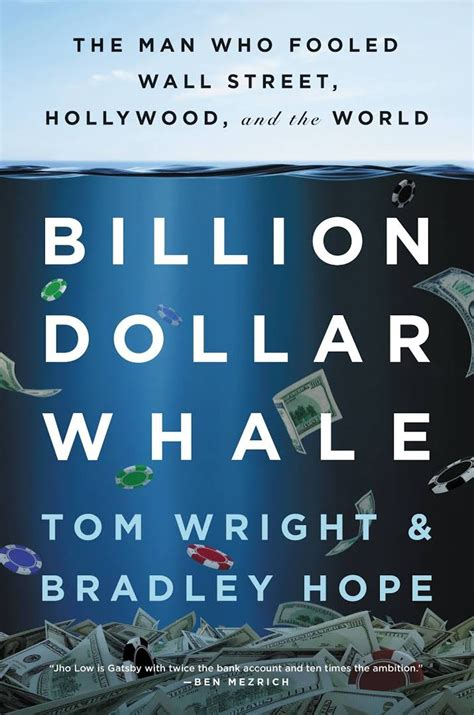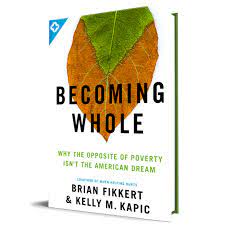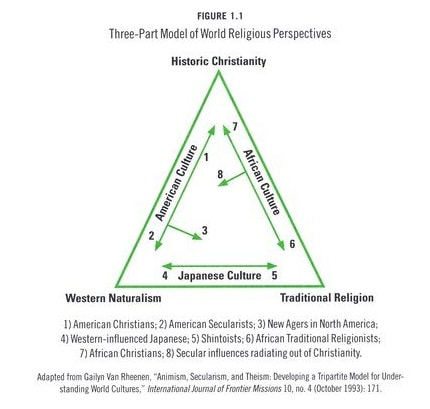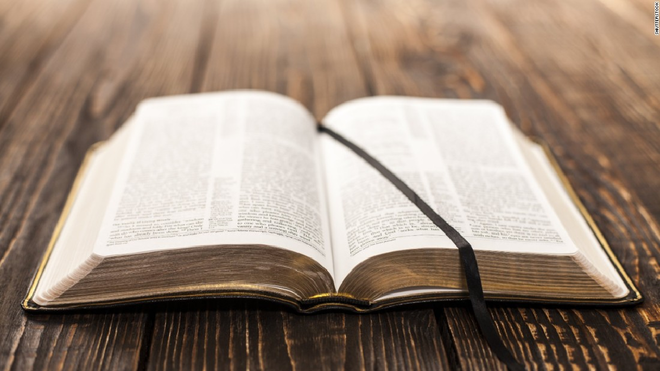Billion Dollar Whale4/23/2021 Billion Dollar Whale is a fun, easy, fascinating read. It falls in the same genre as Bad Blood about Elizabeth Holmes and the fraud perpetrated by her company (Theranos) and Too Big to Fail about the 2008 financial crisis. Investigative journalists Tom Wright and Bradley Hope researched the story extensively and put it all together with excellent journalistic flair.
The book explores the story of a mysterious character, Jho Low, who was able to funnel billions of dollars from the Malaysian sovereign wealth fund 1MDB into his personal accounts in the Cayman Islands and the British Virgin Islands (among other places) through extremely complex financial and social manipulation. Jho Low, was not an investor, capitalist, or stock trader. He was a thief. He came from a moderately wealthy family in Malaysia that had great aspirations. His family sent him to an extremely expensive and exclusive boarding school in England where many billionaires send their children. At this school Low learned about how the global elite live. He wanted that life too. He began aggressively cultivating relationships with wealthy and powerful people at the boarding school and continued to do so in college and beyond. A key part of his modus operandi was making a show of being wealthier than he was and using his existing connections to provide legitimacy for new connections. It was like a ponzi scheme of relationships. Low used his connections with wealthy middle eastern sovereign wealth fund managers, with the Malaysian prime minister and his family, with celebrities like Leonardo DiCaprio, and with various bankers and financiers around the world to vouch for him and to provide cover and sense of legitimacy as he transferred hundreds of millions of dollars out of 1MDB into shell companies and then from shell companies into legitimate bank accounts. In Great Gatsby style, Low used his money to gamble, to spend millions of dollars on one-night parties he often spent more time observing than celebrating, to jet all over the world, to pay for the Malaysian First Lady to buy tens of millions of dollars of jewelry and high-end clothing and other accessories, to buy part of a large music company, to buy multiple houses in multiple cities around the world, and to form his own movie production company, Red Granite, which ironically enough produced The Wolf of Wall Street… The gall and arrogance of this heist is breath-taking. The way he wasted the money he stole is sickening. Billion Dollar Whale made me think harder about the global elite: who they are, how they live, and whether we should worry about them.
0 Comments
Becoming Whole Review4/16/2021 This book tries to marry theology and economics in addressing poverty. The authors want to bring spiritual brokenness or “deformation” into the conversation about why people are materially poor and whether improving their material circumstances should be our highest goal.
This book is about the full Gospel story: Creation, Fall, Redemption, and Restoration. It brings Biblical theology to bear on all kinds of human activity. One way to read the authors’ message is that we (wealthy western Christians) don’t really understand flourishing very well, even for ourselves. The problem is not even that we aren’t good at helping other people become wealthy, it’s that we don’t rightly understand the role of wealth in human flourishing in general. Because they correct not just the methods of poverty alleviation but the goals as well, the authors jump back and forth between discussing what we need to understand in order to help poor people, and what we need to be doing and believing to help ourselves become whole. They offer several schematizations of how historic Christianity has been corrupted or distorted by two alternative views of the world: Traditional Religion and Western Naturalism. They draw a triangle with Historic Christianity, Traditional Religion, and Western Naturalism as the three points. Many western European countries fall between Historic Christianity and Western Naturalism while most developing countries, especially in Africa, fall between Historic Christianity and Traditional Religion. Ruth Study Guide4/2/2021 This study guide synthesizes lessons on the book of Ruth that I led (along with Carson Wong) for Maranatha Grace Church in March 2021. I share these thoughts and reflections for those who want to study and think about Ruth on their own or in a group Bible study. I encourage you to take a quick look at my comments on how and why we should study the Bible before proceeding.
I also encourage you to study the book of Ruth before and while you read this study guide. The process of study is simple but important. Try studying Ruth yourself by making Observations, asking Questions, and considering Meaning. Then compare your understanding with what Carson and I drew out (along with observations from folks in the class). This guide is divided by the four chapters of the book. So, read Ruth chapter 1 and jot down Observations, Questions, and potential Meanings before proceeding. Studying the Bible4/2/2021 Let me share a few general remarks regarding studying the Bible. You should read and re-read whatever text you are studying to become familiar with it. Familiarity makes reflection and meditation on the text easier. It also makes conversation about the text being studied much easier when you (and others) know what happens or what is said well. You can ask better questions when you have a more thorough grasp of the general content.
When reading Scripture, you should be sure to spend time reading large chunks (multiple chapters or an entire book) at one time in order to appreciate context, but you should also spend time reading and dwelling on individual verses to consider carefully what particular words and phrases mean and why they are used. I tend to follow a pretty simple, and certainly not original, process of making Observations, of asking Questions, and of considering the Meaning of a particular text. Observations include plot and characters, conflict and disagreement, commands, resolutions, events, conversations, etc. As you observe, you can easily ask all kinds of questions about the text. Some may be quite easy to resolve just by re-reading the passage. Some may require greater reflection on the events or the meaning of words used. Some may require other research and resources to answer. And some questions you simply may not be able to answer. I recommend the following process for answering questions:
AuthorPaul Mueller is a Senior Research Fellow at AIER, a research fellow and associate director for the Religious Liberty in the States project at the Center for Religion, Culture, and Democracy, and the owner and operator of The Abbey Bed and Breakfast. Archives
August 2021
Categories |




 RSS Feed
RSS Feed
